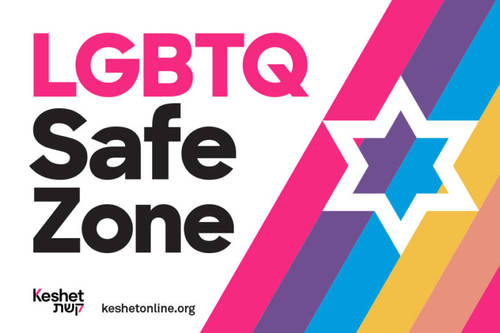Day 1: Put Your Own Oxygen Mask on First
When the Israelites left Egypt, they did not leave empty-handed. On the contrary, the Israelites “asked the Egyptians for objects of silver and gold, and clothing” (Exodus 12:35). The Egyptians, for their part, “let them have their request.” (12:36). Wasn’t freedom from bondage enough? Weren’t there more pressing needs in that frantic moment at the onset of the Exodus? To put it bluntly, no. Without the resources they requested from the Egyptians, the Israelites wouldn’t have survived the sojourn in the wilderness, received the Torah, or made it to the Promised Land. In other words, without these material provisions, the Israelites, despite no longer having been enslaved, wouldn’t have actually been free. Freedom, much less revelation, is impossible without sustenance. As the Mishnah teaches (Avot 3:17), “without flour, there is no Torah.” Unless one cares for their material needs, we remain enslaved to want and unable to acquire sacred wisdom. Self-care is not a luxury with which we reward ourselves once all of our other obligations are met. It’s a necessity, without which we cannot live into our calling.
Day 2: Diversity Testifies to God’s Greatness
The Bible (Exodus 12:38) remarks that a “mixed multitude” left Egypt with the Children of Israel, a group that, according to the ancient rabbis, included Egyptians and other non-Israelites who were moved to join the freed slaves. It’s telling that one of the first steps in the Israelite’s journey from slavery to revelation is the formation of a diverse, inclusive community. As the Mishnah teaches (Avot 4:1), “Who is wise? The one who learns from all people.” Encountering a variety of talents, skills, experiences, and insights enables deep and broad understanding, fosters creativity, and stimulates progress. And, according to tradition, diversity testifies to God’s greatness (Mishnah Sanhedrin 4:5). To discern the Divine, then, is to embrace, honor, and celebrate diversity, building communities of equity and inclusion.
Day 3: Dwelling in Sukkot
According to the Book of Exodus, the route the Israelites take when leaving Egypt is “from Rameses toward Succoth” (Exodus 12:37). While most commentators agree that Succoth is the name of a specific place, the ancient sage Rabbi Eliezer differs, pointing out that the Hebrew word “Succoth” (or as it is often transliterated, sukkot) can also mean temporary shelters (Mekhilta d’Rabbi Yishmael). In Rabbi Eliezer’s reading, the Israelites left Egypt in order to dwell in impermanent booths, in sukkot. Why? It’s important to understand that even though the Israelites were escaping enslavement, living in a sukkah in the wilderness probably didn’t feel like a major improvement in living conditions. If anything, many Israelites may have felt that their situation was better in Egypt, where the housing situation was likely more stable and permanent, and where they likely didn’t have to worry about exposure to the elements, wild animals, or marauding tribes. But perhaps this vulnerability was precisely the point. After all, the conditions of bondage can provide the enslaved person a certain kind of security, but that same security can also have the effect of numbing the enslaved person to their own and others’ needs. To be free is to be vulnerable, but paradoxically it is the very insecurity of freedom that enables feeling, sensitivity to need, compassion and concern for others. To receive a Torah that is at its core about our responsibilities toward one another, the Israelites have to experience vulnerability, perhaps for the first time in their lives. Dwelling in a sukkah is the prerequisite for revelation.
Day 4: Come Together
According to the famous ancient sage Rabbi Akiva, God enveloped the Israelites in divine “Clouds of Glory” upon taking them out of Egypt (Mekhilta). What was the purpose of this enforced togetherness? The danger of the Israelites’ newfound freedom was that these former slaves might confuse liberation from Pharaoh with independence from one another, that they might wrongly understand freedom as unlimited individual rights and no obligations toward others. The purpose of the Exodus was not liberty but responsibility, not leaving Egypt but arriving at Sinai, not release but revelation. The covenant that will be offered to the Israelites at Sinai will demand caring for the injured, attending to those in peril, and not remaining indifferent to others’ suffering. To prepare for entering into such a compact required the Israelites to become conditioned to proximity to one another. The closeness mandated by situating all Israelites underneath the Clouds of Glory was a reminder of what liberation meant and what freedom was for; it was much needed conditioning to hear and heed the divine calling to love and justice at Sinai.
Day 5: Agents of Pharaoh, Emissaries of the Divine
In Jewish law, there is a principle that “a messenger is like the person who sent them” (M. B’rakhot 5:5). In other words, if you sent me to perform a certain task, or to deliver a message, on your behalf, I would, in effect, become you, legally speaking, for the purpose of fulfilling that task or delivering that message. This concept helps shed light on the fact that, when the Israelites leave Egypt, God doesn’t lead them to the Promised Land by the shortest and most direct route, thinking, “The people may have a change of heart when they see war, and return to Egypt” (Ex. 13:17). Usually, this passage is understood to mean God is sensitive to the fact that this band of recently freed slaves would not yet be ready for the battles they would inevitably encounter travelling to the Promised Land by way of Philistine territory, and that, fearful of the fight, they would want to return to the relative security of bondage in Egypt. But there’s another way to understand what’s going on here. The passage begins, “Now when Pharaoh sent the people, God did not lead them by way of the land of the Philistines…” Why “when Pharaoh sent the people,” and not, “when God took the people''? Perhaps the Torah is telling us that when Israel left Egypt, they were still deeply under Pharaoh’s influence in the manner of “a messenger is like the person who sent them,” a people born and bred into a world where might made right, where your foundations determined your fortunes, where power and position prevailed. Maybe, God is concerned that, when such a Pharaoh-like people encounter war, they will revert to their Egyptian mindset, causing them either to fight with inhumane abandon or flee to the protection of their former masters. In order to become “a kingdom of priests and a holy nation” (Ex. 19:6), emissaries of God rather than agents of Pharaoh, the people needed the space, time, and training to cast off their spiritual subjugation and embrace their higher calling.
Day 6: The Way of the Land of the Philistines
Upon leaving Egypt, God doesn’t lead the Israelites to the Promised Land “by way of the land of the Philistines, although it was nearer” (Ex. 13:17). Is this a geographical observation, or a spiritual one? The Hebrew phrase for “way of the land,” derekh eretz, can refer to a physical route, but it is also often used as an idiom, meaning the culture, practices, or prevailing customs of a people or a place. Similarly, “nearer” can denote physical as well as emotional proximity. Thus, another way to read the same verse might yield, “God did not permit them to become at ease with Philistine culture, even though it was more accessible,” or more innate. What was Philistine culture, and in what way were the Israelites susceptible to its lure? The hasidic master Rabbi Kalonymus Kalman Halevi Epstein, known colloquially by the title of his book, Ma’or Va-Shemesh, teaches that Philistine culture is synonymous with the yezter ha-ra, literally “the evil instinct,” that part of our nature that is inclined toward self-centeredness and selfishness (Ma’or Va-Shemesh, Parashat Beshallah 2). As Master Yoda says of the Dark Side of the Force, the yetzer ha-ra is “quicker, easier, more seductive” than its altruistic counterpart, the yetzer ha-tov. According to this view, each Israelite had to first learn how to control and overpower their selfish instinct in order to be able to heed God’s commanding voice at Sinai. After all, Torah, at its core, calls us to transcend our own desires in the service of repairing the world. To receive Torah and walk its paths, we must cease to be at ease with our selfish inclination.
Day 7: What We Gain By Losing
According to legend, only one out of every five Israelites left Egypt (Mekhilta d’Rabbi Yishma’el, Parashat Beshallah). That means eighty percent of the Children of Israel chose to stay behind! Some even say that only one out of every five hundred decided to leave Egypt, less than one percent of the total Israelite population! Why would so many Israelites choose to remain in the place where they and their ancestors were oppressed for centuries, rather than embrace freedom and journey to the Promised Land? Perhaps because all change involves loss; on some level, fear of change is almost always fear of loss. Of course, life in Egypt was harsh. But human beings are remarkably adaptable and resilient, and life under subjugation was still life -- people fell in love, built homes, had children, made memories, experienced joys, navigated hardships. Whatever the promises that freedom and a new life in a new land would be markedly better than enslavement in Egypt, one can understand why some would have preferred to hold on to what they had, rather than risk losing it for uncertain future benefits. Only those rare individuals who were prepared to give up the life they had in order to gain whatever was to come merited to meet God in the wilderness.




